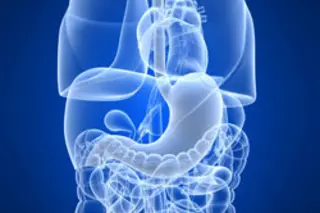In the intensive care nursery at Duke University Medical Center, doctors and nurses attend to premature infants in rows of incubators surrounded by ventilators and monitors. As new parents holding packages of breast milk watch their tiny babies, neonatologist Susan LaTuga makes her rounds, checking vital signs and evaluating how the infants tolerate feeding. She consults with nurses, dietitians, and pharmacists about the course of the day’s treatment for the babies, some of whom weigh as little as one pound and were born as much as 17 weeks early.
At the end of her shift, LaTuga stops at a freezer and inspects stool samples from some of the infants that are at the center of a remarkable new study. Across the Duke campus, technicians are waiting to analyze them with a powerful gene sequencer capable of penetrating the hidden world of the billions of microorganisms growing inside each infant.
LaTuga ...















